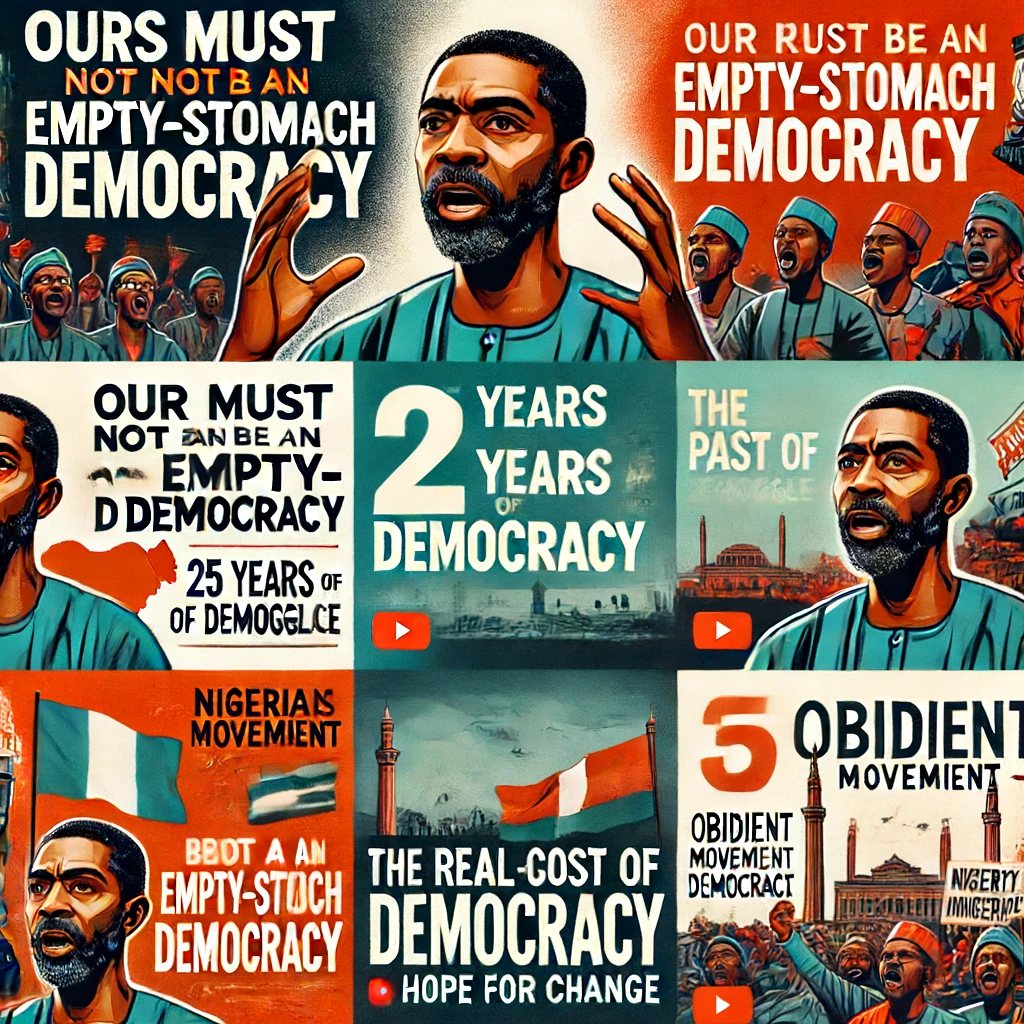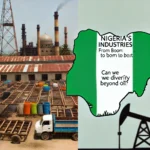Stomach Democracy
By Alaro
Nigeria crossed a significant milestone last Wednesday, marking 25 years of democracy. Yet, despite this journey, our nation still struggles with systemic afflictions that continue to fester. As Nigeria seeks prosperity, many Nigerians still suffer, hoping that democracy will bring meaningful change.
Today, Nigeria stands tall amidst African nations facing economic and security turmoil. However, we must ask ourselves: What are we doing to confront these challenges? How committed are our leaders, and how aware are the followers who support them? What are Nigeria’s forward-looking blueprints for the next decades? Will the ongoing struggles ever end? These questions linger as we reflect on democracy’s impact on our people, who still grapple with poverty and hunger.
In 1999, Chief Olusegun Obasanjo became Nigeria’s civilian president. Despite his efforts, his administration did not alleviate the millions of empty stomachs created by democracy. His successor, Umaru Musa Yar’Adua, faced similar challenges before his untimely death. Goodluck Jonathan took over, but his tenure was marred by corruption and inefficiency. Muhammadu Buhari followed, promising change, but left Nigeria poorer and more confused.
Now, Bola Tinubu faces the monumental task of turning the nation’s ship from wreckage. Despite promises of economic growth, Nigeria’s unemployment rate is rising, with a staggering 23.18 million people out of work. This gloomy economic outlook threatens to increase youth restlessness and crime if left unchecked. Can democracy under Tinubu reverse these dire projections and reduce Nigeria’s N42 trillion debt?
Nigeria boasts 174 universities, 134 polytechnics, and 220 colleges of education. Yet, our educational system is failing, producing graduates who lack essential skills. Our public schools are in disrepair, leading to a generation unprepared for the future. Who benefits from this flawed democracy aside from politicians and their cronies? This system, which drains resources, must be reformed.
Do Nigerians deserve the chokehold of hunger and poverty? Democracy has not significantly reduced poverty. The National Bureau of Statistics reports that about 40.1% of the population, or over 82.9 million Nigerians, are considered poor. Multidimensional poverty affects 63% of Nigerians, highlighting stark regional disparities. Ambitious fiscal reforms are needed to stabilize the economy and increase revenue.
President Tinubu must choose to be a different kind of leader. Our democracy has turned the country into a dysfunctional state that needs fixing. However, there is hope. Recent increases in MDA revenues and the Central Bank of Nigeria clearing forex backlogs signal positive changes. Nigeria’s debt service obligations have been met, and inflation is predicted to reduce by the end of 2024. These are dividends of democracy that Nigerians hope for, but we must strive for more.
We must move beyond an empty-stomach democracy. The Obidient Movement, with its spirit and energy, is crucial for our liberation. Together, we can build a Nigeria where democracy truly serves the people, ensuring a better future for all.



